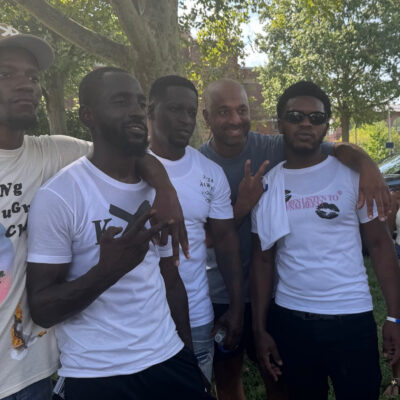Seoul, June 10 – K-pop idols. I am a used tire salesman. A master of the hip-hop world. The road to true success has never been smooth, but Korean-American entertainer Jay Park has had an unusually bumpy road to stardom.
advertisement
advertisement
The 36-year-old is now one of South Korea’s most famous entertainers. He founded two of the country’s biggest hip-hop labels, released a string of hits, had his own soju brand, and became the first Asian-American to sign a contract. Rock Nation by Jay-Z.
But this success has struggled, he told AFP in an exclusive interview. His first attempt at fame, debuting as the leader of a K-pop band, was detonated by a scandal that prompted him to flee Seoul to his hometown of Seattle.
“I faced a lot of backlash,” Park told AFP, adding that he used to be “kind of blacklisted by the industry.”
The issue began when Park, who was in his late teens at the time, posted several desperate comments online criticizing the strict training system for idols, the K-pop industry and South Korea itself.
The Korean media was in an uproar, and the uproar forced Park to leave the seven-member boy band 2PM under the major label JYP Entertainment.
He moved back to Seattle and worked at a second-hand tire store, but continued to pursue his musical dreams, eventually posting cover songs. nothing on you – BOB and Bruno Mars songs – on his YouTube channel.
“I just wanted to show my fans that I’m fine, I wanted to show people what type of music I’m into and what type of artist I am. So I just put the cover on, It kind of ‘exploded,’ he said.
With over 2 million plays in one day, the song catapulted him back into the music industry and marked a “fresh start” for Park.
This also allowed him to readjust his musical style, moving from pop to rap. This would ultimately help transform South Korea’s early hip-hop scene.
This was not a calculated decision or grand plan, he said, but an attempt to overcome the restrictive label.
“If I say I’m a rapper, I can only rap. But I like to rap, I like to dance, and I like to sing,” he said, adding, “Hip-hop culture will always be grateful,” he added, “for helping him restart his career.
competition for survival
Park’s story is rare. It’s rare for K-pop flops to find success in music careers after leaving the big agencies that make up the industry.
“It didn’t happen overnight. It obviously took a lot of work,” Park told AFP of his return to music.
Hundreds of thousands of aspiring K-pop stars are going through a grueling idol training system notorious for high stress and long working hours, analysts say.
According to industry statistics, only 60% of trainees make it to “debut,” and nearly all of them are signed to major agencies such as BTS’s HYBE and main rival SM Entertainment.
Without that backing, “it’s very unlikely to survive,” says music critic Kim Do-hong.
“There are a lot of groups breaking up,” he said.
After Park left 2PM, he found himself navigating the industry, saying, for example, that he had trouble finding musicians to join him on his first solo album.
But even when the industry is in an unfavorable position, Park says it is possible to succeed if you have the right mindset.
“There’s a limit to what an agency can do for you. I think grit and determination can fill that gap,” he said.
change the industry
Now Park is trying to change the industry, or part of it, for the better.
He has already founded two of South Korea’s most prominent hip-hop labels. And now his career has come full circle and he has founded a third label aimed at producing boy bands.
But he does it his way. He believes real relationships and “freestyle together” are key to success, not the rigorous training and relentless level of management that the big agencies pioneered, Park said.
His new trainee will have Mr. Park as his mentor. He says it was something he dreamed of when he started in the industry at the age of 18.
“I don’t hold a grudge against anything. I don’t hate anyone. I don’t hate anyone. I don’t have time for that. I don’t have time to think about the past,” he said.
“You can’t change the past, so you can change the future, and that’s what I’m working on.” — ETX Studios










